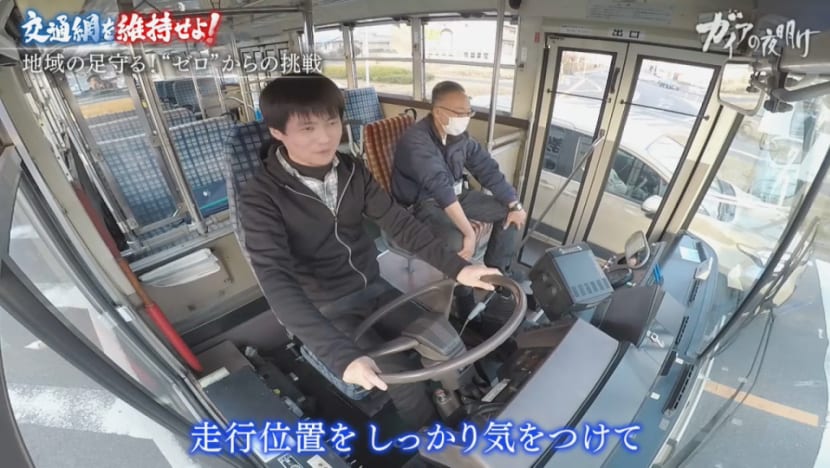Gaia Series 49 : Bus & Taxi Struggle 2024
Japan faces a public transport crisis due to driver shortages. Innovative recruitment and technology could be key solutions to maintaining its renowned efficient transport system.


This audio is generated by an AI tool.
This week’s episode explores the challenges and innovative responses in Japan's public transportation sector amid a significant driver shortage.
Amidst the backdrop of Tokyo's bustling Akihabara district, the narrative of Japan’s transport crisis unfolds—a story of necessity and innovation as the nation grapples with a severe driver shortage. This week’s episode highlights this pressing issue, capturing poignant moments of individuals who converge not just to commute but to engage directly with the lifelines under threat—their local transportation systems.
The episode begins in late January in Akihabara at the Hitachi Automobile Transportation company, where the reality of the "2024 problem" comes to life—a term describing the acute shortage of drivers following stringent work reforms in April that limit overtime and extend mandatory rest periods. The new laws limit the overtime that drivers can take on each year to 960 hours. It is also mandated that they need to take at least a nine hours break between shifts, up from eight. Together with Japan’s shrinking and ageing population, this problem is further amplified.
The entire industry has been scrambling to come up ways to recruit more drivers. In addition to attractive wages and signing on bonuses, the latter which comes up to 400,000 yen (S$3,360), they are also offering better working conditions.
They are also organising recruitment tours to showcase the day-to-day realities and potential career paths within the industry. A participant in one of these tours to attract new drivers, a young woman, takes the driver's seat for the first time and shared her aspirations directly: "I would like to be a driver. I've always admired them. It's so cool," her words reflecting both her personal ambitions and a silver lining for the transport industry.
The episode also delves into the operational challenges faced by transportation companies. Yoshiaki Nishikawa, Operations Manager at Okaden Bus, highlights the daily struggles with understaffing: "There should be a driver to cover these shifts," he points out, indicating a schedule board marked with red lines signifying uncovered shifts, “I think we need to consider lowering the number of journeys if we can’t get any additional drivers”. His concern underscores the stress on the workforce and the ripple effects throughout the community reliant on these bus services.
Ryobi Group’s, that owns Okaden Bus, Director Mitsunobu Kojima is known as the revitaliser of regional transport systems. He is determined to draw interest and investment back into local transport: "At this time, we must think about the form that this support takes," he explains, emphasising the need for innovative strategies to sustain and enhance public transportation amidst these challenges.
This includes Ryobi Group's "best recruitment drive in the universe" that epitomises the proactive steps being taken to not only fill the immediate gaps in staffing but to reinvigorate interest in a profession that has become less appealing over time. This recruitment initiative involves increasing annual wages by 180,000 yen, changing work schedules to morning and afternoon shifts as well as removing any overtime shifts.
They are also conducting “Driver Experience” days to attract people who wish to transition into driving careers, renting out an entire driving school to show them the fun of driving a bus. This has been a resounding success. The initial target for the initiative was to hire 50 new drivers but they have managed to get 52, such as the recruitment of Hideyuki Kurihara. The 43-year-old made a career change from the tourism sector and obtained his Class 2 Large Motor Vehicle license, all fully sponsored by Ryobi Group. On officially receiving his uniform, he says: “I am now part of the city's transport network which is vital to the city”.
The narrative culminates with a hopeful note from Kojima, reflecting on his success with the Wakayama Electric Railway where he famously appointed a cat named Tama as stationmaster, a testament to his creative approach to problem-solving. "We are doing everything we can to support these regional transport networks that are in danger of collapsing," he states, providing a hopeful outlook towards a sustainable future for Japan's public transportation.
This episode, with all its personal stories in different sectors of the transport industry, from buses to taxis, illustrates the complex interplay between maintaining service levels and adapting to new regulations intended to improve working conditions. As Japan navigates this challenging landscape, the choices made today could significantly shape the future of its public transportation system.












